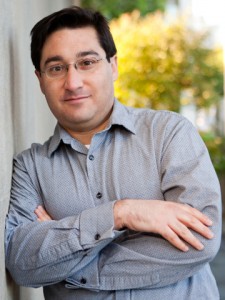 A recent article in the Baltimore Sun about a series of mobile health studies underway at Johns Hopkins University referenced a person familiar to many a MobiHealthNews reader: Susannah Fox, the healthcare research guru at the Pew Internet & American Life Project.
A recent article in the Baltimore Sun about a series of mobile health studies underway at Johns Hopkins University referenced a person familiar to many a MobiHealthNews reader: Susannah Fox, the healthcare research guru at the Pew Internet & American Life Project.
According to Fox, about 10 percent of U.S. adults who have cell phones – and nearly every adult in the country has one these days – had registered to use a mobile health app, a number nearly unchanged from a year ago. Many, Fox told the Sun, used the app only once, if they even tried it at all.
Granted, not every mobile phone user has a smartphone that can run third-party apps, but smartphone adoption continues to grow, so it might seem surprising that interest in health apps has reached a plateau at least for now. I, for one, was not surprised.
I've been saying for quite some time that direct-to-consumer health apps have limited appeal as long as they're made for the same young, techie types who design them. And apparently I am not alone.
Earlier this month, The Atlantic ran a provocative story about why Silicon Valley has yet to design a good health app. "Homogenous teams of innovators make products for people just like them. And that's a problem," reads the subhead.
"Many great innovators build what they know, for whom they know," the story says, noting that Mark Zuckerberg – or at least the Zuck depicted by Jesse Eisenberg in "The Social Network" – built the framework for Facebook because it helped him meet new people and "access the lives of the elite." Obviously, there is a huge market for that sort of thing, and the scale of Facebook reflects that.
This model does not necessarily translate to healthcare, though. "[The] demographics of an audience of Lululemon wearers, yoga-practitioners, and vegans is a very different market segment than the obese, the chronically ill, and those with limited access to health education resources," South Africa native Kanyi Maqubela writes in his Atlantic commentary.
I've made that argument myself, and I'm glad to see others picking up on it. Soledad O'Brien's "Black in America" CNN special report on the lack in diversity in Silicon Valley highlighted part of the problem and how some African-American entrepreneurs are attempting to change the culture, but the bubble persists, and not just in the space between San Francisco and San Jose, Calif. It's not a geographic issue, but a demographic one.
Last week I received the same pitch three times about a new version of an app the publicist called "the ultimate digital personal trainer." (By the way, "ultimate" means "last" or "highest." Version 3 of a smartphone app doesn't exactly meet that definition.)
The second pitch, one day after the first, had even more loaded words. The app, according to the e-mail, "goes live tomorrow with LOTS of new updates, and hitting the competition HARD. Here's a link to their promo video (fun!) and a demo video shot at the App.net showcase at SXSW." I responded by saying that fitness apps are dime a dozen, despite the breathless hype at places like South by Southwest.
A day later, I got the third – and ultimate – pitch, saying that the publicist had never heard back from me (not true), and adding the following gem: "Their new platform is pretty compelling -- unlike Nike Fuel, BodyMedia's FitLink, and Jawbone UP -- it tracks and then holds you to action. Built by ex-Google people and certified personal trainers the analytics and workouts are based on exercise-science based algorithms."
It might be compelling for the fitness crowd, perhaps, but not for the Medicare patient with multiple chronic diseases and limited health literacy. That's where the drain on our healthcare resources is coming from and where the largest market potential exists. (I'm not even going to comment on the strategy of trying to trade on experience at Google when it comes to healthcare.)
I'm told that the most popular story on MobiHealthNews so far this week is the interview I did with Dr. Steve Daviss, CMIO of M-3 Information, which developed of an app that screens for four common, debilitating and underdiagnosed mental illnesses. That tells me MobiHealthNews readers care about apps that help address real problems that affect large populations and cost the U.S. healthcare sector billions of dollars a year.
Follow the money, not the hype.

















